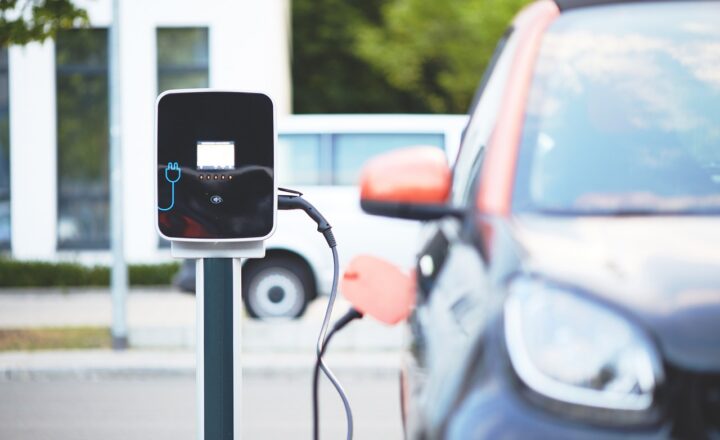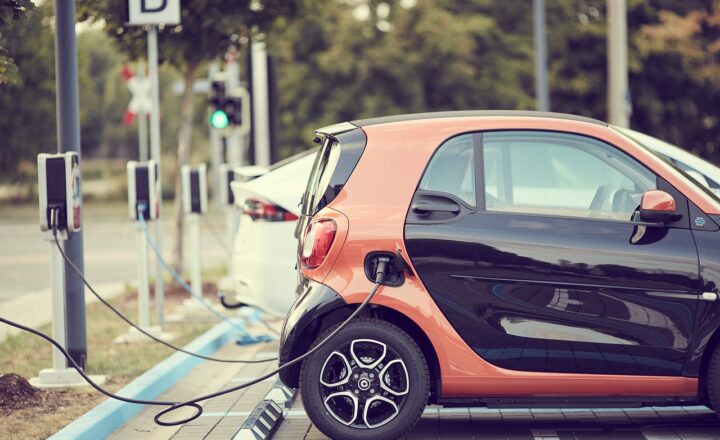The Rise of Electric Transportation: What You Need to Know Before Your Next Purchase
November 18, 2024

Electric transportation has become a buzzword in recent years, transforming the way we think about mobility, sustainability, and our carbon footprint. As climate change continues to dominate conversations around the globe, electric vehicles (EVs) are being championed as a solution that combines environmental responsibility with cutting-edge technology. The rapid growth of electric transportation not only highlights a shift in consumer preferences but also signals a profound change in the automotive industry itself.
In this comprehensive guide, we will explore the rise of electric transportation, key considerations before purchasing an electric vehicle, and what the future holds for this burgeoning market.
1. Understanding Electric Vehicles: What Are They?
Electric vehicles are powered entirely or partially by electricity, which significantly distinguishes them from conventional gasoline or diesel-powered vehicles. They come in several types:
– Battery Electric Vehicles (BEVs): These vehicles rely entirely on electric power stored in batteries. They are charged via plug-in charging stations and do not have an internal combustion engine.
– Plug-in Hybrid Electric Vehicles (PHEVs): PHEVs combine an electric motor with an internal combustion engine, allowing for both electric and traditional fuel operation. They can be charged using electricity and also have the flexibility of a gasoline engine for longer trips.
– Hybrid Electric Vehicles (HEVs): Although similar to PHEVs, HEVs do not plug in; instead, they charge through regenerative braking and the internal combustion engine, providing enhanced fuel efficiency and reducing emissions.
With evolving technologies and increased options on the market, EVs are becoming accessible to a broader audience, often offering numerous benefits over traditional vehicles.
2. The Benefits of Electric Transportation
The rise of electric transportation is fueled by several compelling benefits that sway consumer decisions:
– Environmental Impact: One of the most significant benefits of electric vehicles is their lower environmental impact. EVs produce fewer tailpipe emissions compared to conventional vehicles, making them a greener option. This is especially true when powered by renewable energy.
– Cost Savings: While the initial cost of purchasing an electric vehicle can be higher, they often save money in the long run through reduced fuel costs and lower maintenance expenses due to fewer moving parts.
– Performance Advantages: Electric vehicles deliver impressive acceleration due to the instant torque provided by electric motors. This makes them not just environmentally friendly but also fun to drive.
– Government Incentives: Many governments offer incentives for electric vehicle buyers, such as tax credits, rebates, and access to carpool lanes, further encouraging the transition to electric.
– Technology Features: EVs come equipped with modern technology features such as advanced infotainment systems, autonomous driving capabilities, and over-the-air updates that enhance user experience.
3. Key Considerations Before Purchasing an Electric Vehicle
Before investing in an electric vehicle, you should consider several factors to ensure you make the best choice for your lifestyle and needs:
– Range Anxiety: Although improving rapidly, the all-electric range of some EVs may still concern buyers, especially if you frequently take long trips. Research potential options and charging infrastructure along your routes.
– Charging Infrastructure: Look into local charging stations and home charging solutions. Installing a Level 2 home charger can significantly enhance convenience but might require additional investment.
– Battery Life and Warranty: Electric vehicle batteries come with warranties, typically spanning 8 to 10 years. Ensure you understand the manufacturer’s warranty and what it covers when purchasing.
– Initial Purchase Cost vs. Long-term Savings: Evaluate the total cost of ownership, including initial purchase price, potential rebates, fuel cost savings, and maintenance expenses over time.
– Your Driving Habits: Assess your typical driving patterns to determine if an electric vehicle fits your lifestyle. For many, an EV can suffice as a primary vehicle, while some may still require a traditional car for specific uses.
– Brand and Model Selection: Research various brands and models based on your preferences for performance, features, and aesthetics. Popular options currently include Tesla, Chevrolet, Nissan, and Ford, among others.
4. The Future of Electric Transportation
The trajectory of electric transportation appears promising. Experts predict that as battery technology improves and costs decline, electric vehicles will become more accessible and desirable.
– Battery Technology Advances: Innovations in battery technology are already leading to faster charging times, longer ranges, and improved performance. More efficient batteries will facilitate the integration of electric vehicles into everyday life.
– Increased Charging Availability: Governments and private companies are investing heavily in electric charging infrastructure, making it easier than ever for consumers to charge their vehicles and reduce range anxiety.
– More Affordable Models: As more manufacturers enter the market, competition will drive prices down, leading to a wider selection of affordable electric vehicles that cater to more buyers.
– Integration with Renewable Energy: The marriage of electric transportation with renewable energy sources presents an exciting future. Imagine charging your vehicle with solar panels or wind energy, significantly reducing your carbon footprint.
Electric transportation is not just a passing trend; it is a transformation waiting to happen, and you are at the forefront of this change.
Conclusion
As electric transportation solidifies its place in the automotive market, understanding its benefits, potential challenges, and future developments will set you up for success in your next vehicle purchase. With numerous options available today and exciting advancements on the horizon, now is an ideal time to consider the switch to electric.
By investing in an electric vehicle, not only will you be taking a significant step towards reducing your carbon footprint, but you’ll also enjoy the perks associated with this modern approach to transportation. So, whether you’re exploring your first EV or considering an upgrade, keep these insights in mind as you embark on your electrifying journey.





